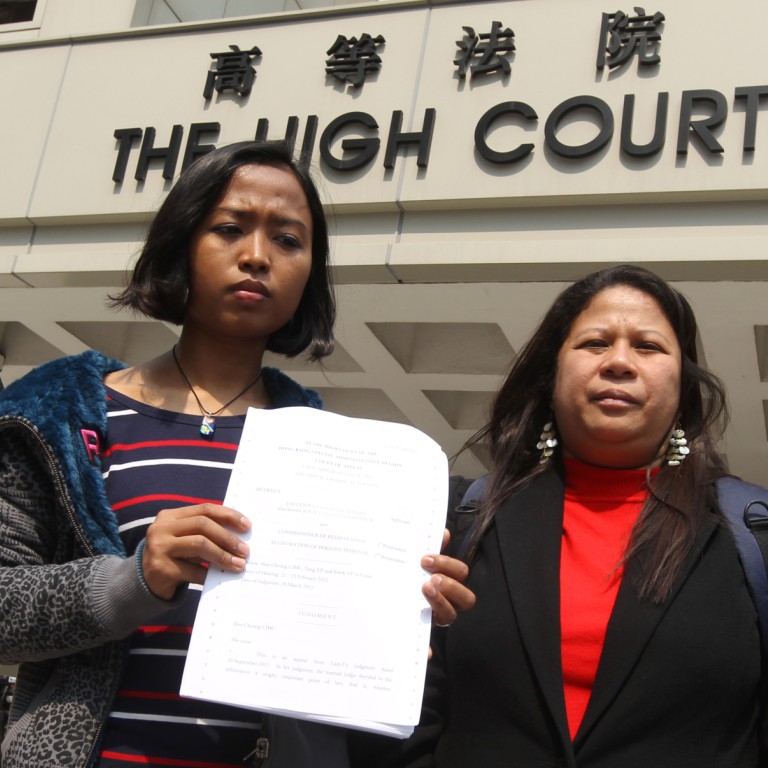
Evangeline Vallejos, domestic helper in abode case, 'feared for safety in Hong Kong'
The domestic helper at the centre of a high-profile court battle for the right of abode has moved back to the Philippines because she fears for her safety, her former employer says.
Evangeline Banao Vallejos, who turned 60 this year, left behind the legal fight and flew home in October.
Her employer, visual artist Barry Ong, said Vallejos also wanted to be closer to her 11 grandchildren in the Philippines, where she has a big house and a large plot of land.
Her legal representative, human rights lawyer Mark Daly, said the case would still go ahead and the legal team was reviewing documents filed by the government before the team would decide on whether to file other documents to supplement their case.
Daly said: "We don’t have any comment to make but it sounds contrary to the instructions we received from Ms Vallejos. It’s the rumour that’s bothering us."
Vallejos, who has lived in Hong Kong for 25 years, will be financially helped by her seven children, all of whom completed university. One is a doctor and another is an architect.
In September last year, the Court of First Instance ruled in favour of Vallejos and struck down the immigration law that prevents domestic helpers from seeking permanent residency as unconstitutional.
But the Court of Appeal reversed the decision in March on the grounds the government must have the power to impose immigration controls. In June, the maid was granted leave to take the case to the highest court because it involved "great general public importance". The case will be heard in the Court of Final Appeal in February.
Controversy over the case took a new turn last week when the government said it had asked the Court of Final Appeal to seek clarification from Beijing on permanent residency as laid out in the Basic Law.
The government hoped the clarification would resolve issues involving domestic helpers and children born to mainland parents in a single step.
"The government must grant her the status if the law entitles her to it," Ong said. "But whether she will take it is another thing.
"What's the point if she has to look out whenever she goes out, fearing for safety? What if a psycho who has been out of a job for many years sees her in the street and bashes her head?"
Vallejos filed her application for a permanent identity card four years ago.
Ong said the spiralling inflation and high living costs in Hong Kong had also contributed to Vallejos' departure.
When asked whether Vallejos' absence from the city would affect her legal aid allowance, a spokeswoman said the Legal Aid Department would not comment on individual cases.
But she said that, in general, whether a legal aid recipient was in Hong Kong or not was not a factor for deciding whether to grant a person funds.
"As long as she can be contacted or she has given instructions to her lawyers, whether she is in Hong Kong or not is not a problem," she said. "What is most important is the cause of the litigation."
The story was amended at 11:20am on December 22 to correct the quote by Mark Daly in the 5th paragraph.
